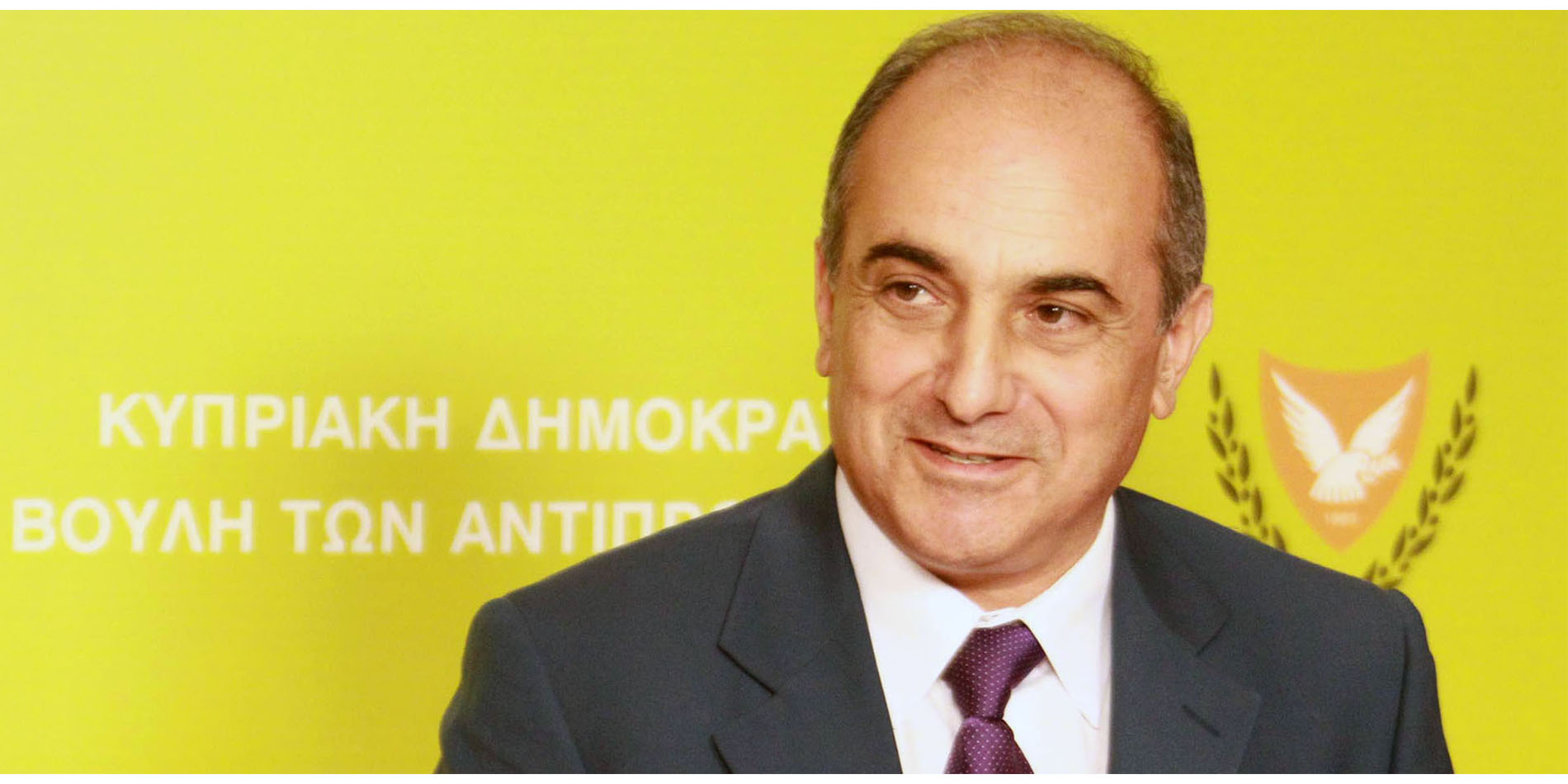Cyprus House President Demetris Syllouris said he will forego his wages for the next two months with that money to be used in the effort to combat the COVID-19 virus.
“During these critical times that our country is facing and the needs that arise, as a token of my contribution I am offering my entire salary of the next two months [to be used] for the efforts to combat the coronavirus crisis,” Syllouris said in a statement.
The net amount he is offering, after deductions and taxes, is estimated at €11,600.
The President of the House of Representatives, who steps in as leader whenever the President of the Republic is out of the country or is incapacitated, earns €10,200 a month gross, which after deductions, social insurance and health scheme contributions, and taxes, comes down to €5,800 a month.
President Nicos Anastasiades earns €164,871 a year gross, for a net salary of €90,527 or €6,960 a month. Cabinet members, including the government spokesman, earn €106,902 a year gross, or €61,594 net, for €4,740 a month, while members of parliament take home a net salary of €4,580 a month.
Soon after Syllouris’ announcement, ruling DISY parliamentary spokesman Nicos Tornaritis said his party’s 18 MPs unanimously agreed to deduct 40% from next month’s salary and that he has instructed the state’s Accountant General accordingly.
The rate declared by the DISY MPs is equal to the pay cut that private sector employees will get if their work is suspended, in line with the government directive announced last week.
The government’s package for buffering the economy includes subsidising the wages of private-sector workers whose employers have been shut down, with €813 mln, or about 3.8% of GDP.
This subsidy is equal to the monthly benefit of registered unemployed or 40% below the average of their last months’ wages.
No other politician or political parties have offered to contribute all or, or at least part of their wages to the general government fund to help combat coronavirus and its impact on the economy.
Civil servants were outraged when the Director-General of the Employers’ and Industrialists Federation (OEV) suggested recently that public sector workers should also share part of the burden to help lessen the blow on the economy, saying that all of the cost will be absorbed by private-sector employees and small to medium-sized enterprises (SMEs), just as they did during the 2012-13 financial crisis and banking meltdown.
Several months ago, the Supreme Court ruled that the minimal pay cut on civil servants’ wages during the past few years, as Cyprus was struggling to get out of recession, was unconstitutional and that their wages ought to be reinstated to the full, causing anger among private-sector employees, many of whom lost their jobs, while others saw wage cuts of 40-70%.










